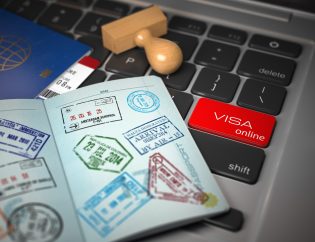
Managing finances as a digital nomad can be complex, especially when juggling multiple currencies, international transactions, and tax obligations. With the right tools and strategies, you can simplify your financial life and focus on enjoying your nomadic lifestyle.
This article explores the best practices for banking, budgeting, and securing your finances while traveling the world.
1.
Choosing the Right Banking Solution
Digital nomads need banking solutions that offer flexibility and global access. Key features to look for include:
- Multi-Currency Accounts: Handle transactions in multiple currencies without high conversion fees.
- Global ATM Access: Look for banks with low or no fees for international withdrawals.
- Reliable Mobile Apps: Ensure seamless access to account management and transfers.
Our Top Picks:
- Wise (formerly TransferWise): Ideal for low-cost international transfers and multi-currency accounts.
- Revolut: Offers competitive exchange rates and travel-friendly perks.
- Charles Schwab: Refunds ATM fees worldwide, a favorite among U.S. expats.
2.
Managing Currency Exchange Rates
Fluctuating exchange rates can impact your spending and savings. Strategies to mitigate this include:
- Use Forex Cards: Pre-load currency at locked rates to avoid fluctuations.
- Monitor Exchange Rates: Apps like XE Currency provide real-time updates.
- Time Transfers Wisely: Transfer funds when rates are favorable.
3.
Securing Your Finances
Staying secure is essential for nomads handling finances across borders:
- Set Up Two-Factor Authentication: Protect accounts with added security layers.
- Avoid Public Wi-Fi for Transactions: Use a VPN when accessing sensitive information.
- Diversify Your Accounts: Spread your funds across multiple accounts to minimize risk.
Pro Tip: Store emergency cash in a secure but accessible location, such as a travel-safe or hidden pouch.
4.
Budgeting for a Nomadic Lifestyle
Budgeting as a nomad involves accounting for variable costs like accommodation, transportation, and healthcare:
- Track Expenses: Apps like YNAB (You Need a Budget) and Mint help monitor spending.
- Plan for Emergencies: Maintain a safety net equivalent to three to six months’ expenses.
- Leverage Geo-Arbitrage: Live in affordable destinations to stretch your budget.
Example: A remote worker saved 40% of their income by living in Vietnam, balancing a comfortable lifestyle with financial security.
5.
Handling Taxes as a Nomad
Taxes can be tricky when living abroad. Steps to simplify your tax obligations include:
- Understand Residency Rules: Determine your tax obligations in your home and host countries.
- Use Digital Tax Tools: Platforms like Nomadic Tax streamline filing for U.S. expats and other nomads.
- Work with a Specialist: Hire an accountant familiar with international tax laws.
6.
Insurance and Financial Safety Nets
Prepare for unexpected events by investing in:
- Travel Insurance: Covers emergencies, cancellations, and lost belongings.
- Health Insurance: Ensure access to quality healthcare in your destinations.
- Income Protection Insurance: Safeguards your earnings in case of illness or job loss.
7.
Nomadic Go simplifies financial management for nomads by offering:
- Assistance with opening international bank accounts.
- Recommendations for insurance and financial safety nets.
- Tax optimization services tailored to nomadic lifestyles.
8.
Real Stories of Success
Case Study: Emma, a freelance writer, relied on Nomadic Go to set up a multi-currency account and streamline her payments from international clients. The result? Lower fees and better financial control while living in Bali.











